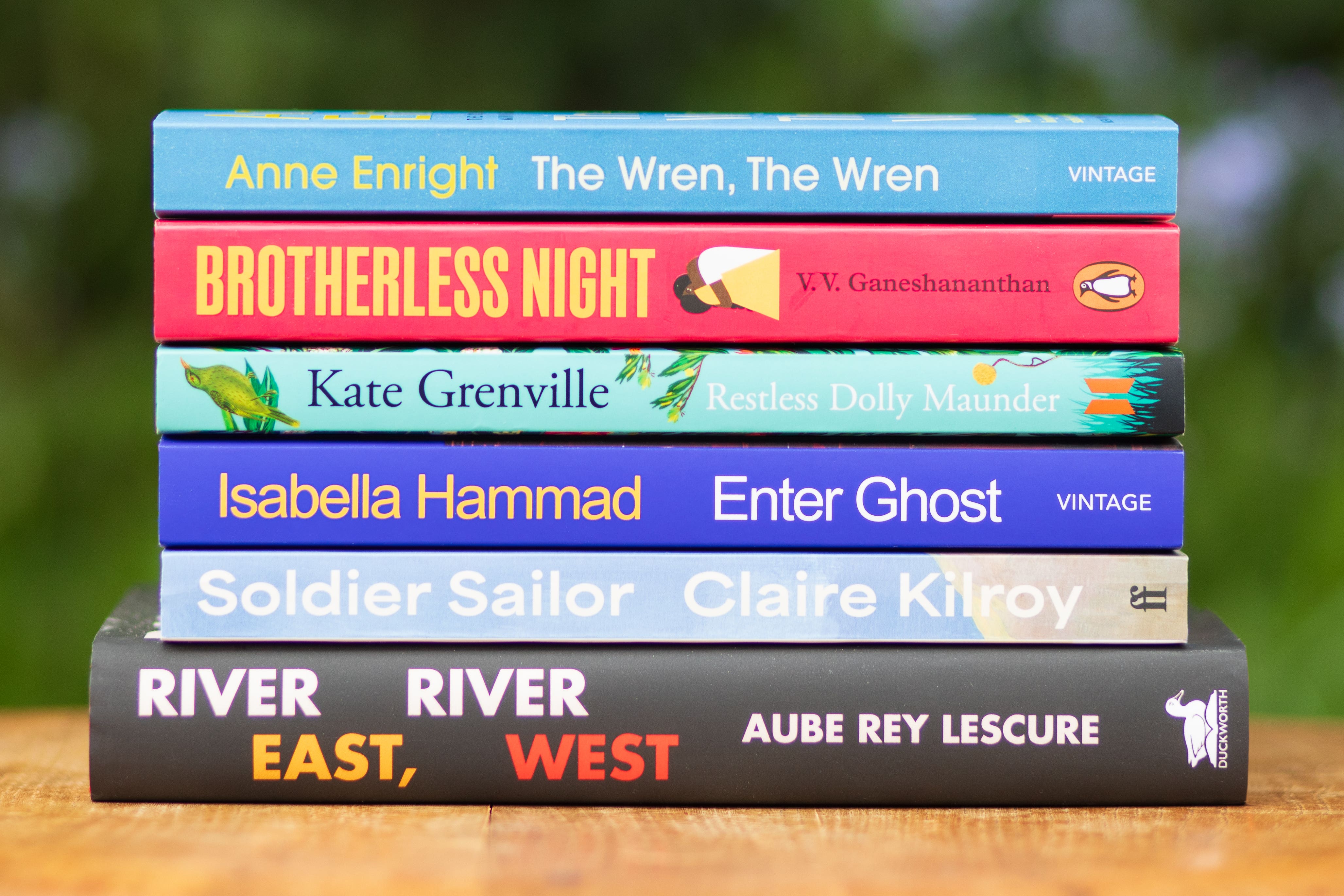Migration and trauma explored in shortlisted Women’s Prize For Fiction novels
Now in its 29th year, the prestigious prize is open to original fiction written in English by women from anywhere in the world.

Your support helps us to tell the story
From reproductive rights to climate change to Big Tech, The Independent is on the ground when the story is developing. Whether it's investigating the financials of Elon Musk's pro-Trump PAC or producing our latest documentary, 'The A Word', which shines a light on the American women fighting for reproductive rights, we know how important it is to parse out the facts from the messaging.
At such a critical moment in US history, we need reporters on the ground. Your donation allows us to keep sending journalists to speak to both sides of the story.
The Independent is trusted by Americans across the entire political spectrum. And unlike many other quality news outlets, we choose not to lock Americans out of our reporting and analysis with paywalls. We believe quality journalism should be available to everyone, paid for by those who can afford it.
Your support makes all the difference.Migration, the inheritance of trauma and female resilience are among the themes explored in the six books shortlisted for the Women’s Prize For Fiction.
Two Irish authors are among those selected – Anne Enright for her multi-generational tale The Wren, The Wren and Claire Kilroy for her story of motherhood, titled Soldier Sailor – while British author Isabella Hammad’s second novel Enter Ghost has been chosen.
Australian writer Kate Grenville makes the list with her historical adventure Restless Dolly Maunder, and American author VV Ganeshananthan is nominated for her second novel Brotherless Night – set during Sri Lanka’s civil war.
French-Chinese-American author Aube Rey Lescure rounds off the list with her debut novel River East, River West, which reverses the immigrant narrative.
The Wren, The Wren by Dublin-born Enright, who was previously shortlisted for the prize in 2012 and 2016, looks at the impact of a traumatic childhood.
Kilroy explores the emotional experience of becoming a new mother in Soldier Sailor, raising questions about female autonomy, creativity and motherhood.
Ganeshananthan, who was longlisted in 2009, delves into fractured families in her latest novel, while Hammad’s Enter Ghost follows an actress’s return to her Palestinian homeland.
River East, River West by Lescure explores a similar narrative, but set amidst China’s economic boom in the latter half of the 21st century.
Grenville previously won the Women’s Prize, then called the Orange Prize, in 2001 for The Idea Of Perfection.
Her 2024 shortlisted work is a fictional exploration of the life of Grenville’s grandmother, who was born in the 1880s in New South Wales, and her attempt to live a more independent life than the one she was granted.
Now in its 29th year, the prestigious prize is open to original fiction written in English by women from anywhere in the world.
The chairwoman of the judges, Monica Ali, said: “This year’s shortlist features six brilliant, thought-provoking and spellbinding novels that between them capture an enormous breadth of the human experience.
“Readers will be captivated by the characters, the luminous writing and the exquisite storytelling.
“Each book is gloriously compelling and inventive and lingers in the heart and mind long after the final page.”
Ali is joined on the judging panel by author Ayobami Adebayo, author and illustrator Laura Dockrill, actor Indira Varma and presenter and author Anna Whitehouse.
The 2024 winner will be crowned at the Women’s Prize Trust’s summer party in central London on June 13, along with the inaugural winner of the Women’s Prize for Non-Fiction.
She will receive a £30,000 prize, anonymously endowed, and a bronze figurine known as the Bessie, created and donated by the artist Grizel Niven.